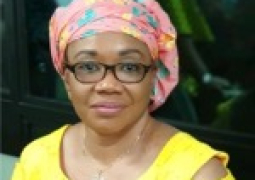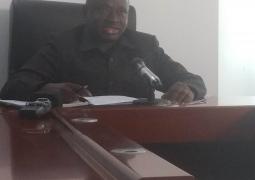
A new political storm is brewing in Senegal’s ruling alliance as President Bassirou Diomaye Faye’s decision to overhaul the “Coalition Diomaye Président” has been met with open resistance from PASTEF, the movement that propelled him to power.
What was once hailed as a united revolutionary front is now showing visible cracks with accusations of overreach, power struggles, and conflicting visions for the country’s political future.
President Bassirou Diomaye Faye has appointed Aminata Touré, former general supervisor of his 2024 presidential campaign, to lead the restructuring of the “Coalition Diomaye Président”.
The announcement, made in an official letter dated November 11, 2025, marks a bold attempt to revive a coalition that has been struggling with internal stagnation and division since its electoral triumph.
According to President Faye, the restructuring aims to make the coalition “more functional, better structured and fully efficient” in advancing their shared political vision. He emphasised that the process should be inclusive and involve all members of the Conference of Leaders.
“In light of the need to restore cohesion and strengthen operational efficiency, I have chosen Madam Aminata Touré to lead this process,” the president stated, expressing confidence in her “experience, dedication, and unifying spirit”.
According to a press release by Pastef, this move follows President Faye’s earlier decision on September 10, 2025, to relieve Madam Aïda Mbodj of her duties as head of the coalition, a move that was initially received with gratitude for her leadership but has now ignited a deeper political confrontation.
In a sharp response, PASTEF Les Patriotes, the political movement co-founded by Prime Minister Ousmane Sonko, issued a statement rejecting the president’s move and reaffirming its autonomy. The party welcomed the intention to strengthen the coalition but clarified that the restructuring process had already begun under the leadership of Madam Aïssatou Mbodj, who was appointed by the Conference of Leaders after the March 2024 elections.
PASTEF revealed that significant groundwork had already been done, including the drafting of key founding documents such as the charter, internal regulations, and organisational structure, as well as the proposal of a new coalition name APTE (Alliance Patriotique pour le Travail et l’Éthique) to replace the now-outdated “Diomaye Président” label.
The statement further asserted that President Faye holds no formal authority to dismiss Madam Aïssatou Mbodj, stressing that his role within the coalition was limited to being its presidential candidate, not its leader.
“PASTEF and its allies do not recognize any initiative coordinated by Madam Aminata Touré, with whom they share neither the same values nor the same principles,” the release stated firmly.
The party concluded by affirming its ongoing agenda to merge with allied organisations, to expand its membership, and to finalise the APTE coalition under the leadership of Aïssatou Mbodj, signaling a widening rift between the presidency and its revolutionary base.
As the power dynamics within Senegal’s ruling alliance evolve and shift, the coming weeks could prove decisive for the political balance between President Faye and Prime Minister Sonko and for the survival of the movement that once promised a new political dawn.
Read Other Articles In Headlines




